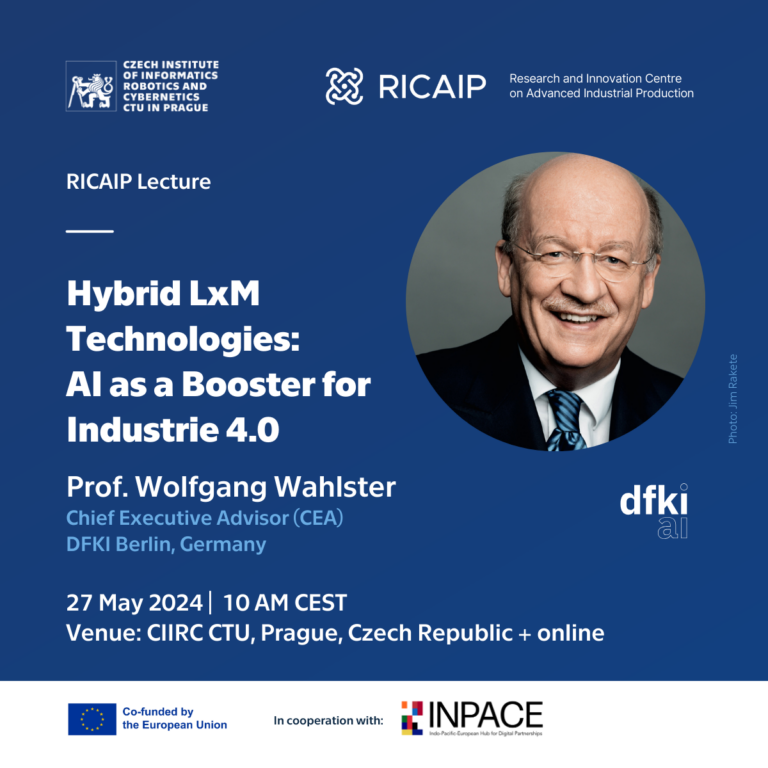
Datum / čas
Date(s) - 27.05.
10:00 - 11:00
Kategorie
Dear colleagues, we invite you to a unique lecture by the renowned Professor Wolfgang Wahlster from The German Research Center for Artificial Intelligence (DFKI) Berlin. The lecture will take place at our institute on May 27 from 10:00 a.m. in the red hall.
When: May 27, 2024, 10 AM
Where: CIIRC Testbed Multimedia Room
Abstract of the lecture:
In the next decade of Industrie 4.0 a new generation of AI technologies will take smart factories to a new level. Large Language Models (LLMs) will be complemented by Large Process Models (LPMs) and Large Action Models (LAMs), so that generative neural models not only predict what to say or visualize next, but also what to do next.
Because LPMs and LAMs are trained on data lakes of process specifications and action sequences, they can predict which plan to take based on a given task and thus can execute the task from start to completion, creating more agency and autonomy in smart factories. LxM technologies avoid the effort of manually coding active digital twins, but are able to code a significant portion of them automatically based on neural transformers.
Although deep learning is the most powerful learning method developed to date, it has already reached its inherent limits in many industrial application domains and must be combined with various symbolic approaches in new system architectures. This leads to hybrid LxM (x=L,P, or M) technologies that use holonic multiagent architectures for combining neural approaches with symbolic reasoning technologies such as constraint solving, physics-based simulation and terminological reasoning in knowledge graphs.
We present and discuss our new roadmap for the next decade of research and innovation for Industrie 4.0 from 2024 to 2034. Some self-appointed “experts” have proposed on the EU level the new term “Industry 5.0”. But this is neither necessary nor helpful as it wrongly suggests that the Fourth Industrial Revolution is complete. In addition, the suggested „new topics“ were already focus areas in the original specification of the goals of Industrie 4.0.
Before we conclude, we will present two examples of LxM applications: the recent DFKI spin-off company XPECT, which combines process mining with execution and compliance verification, and the latest version of AIQUAMA, which uses neuro-symbolic methods for zero-error assembly in hybrid robot-human teams.

